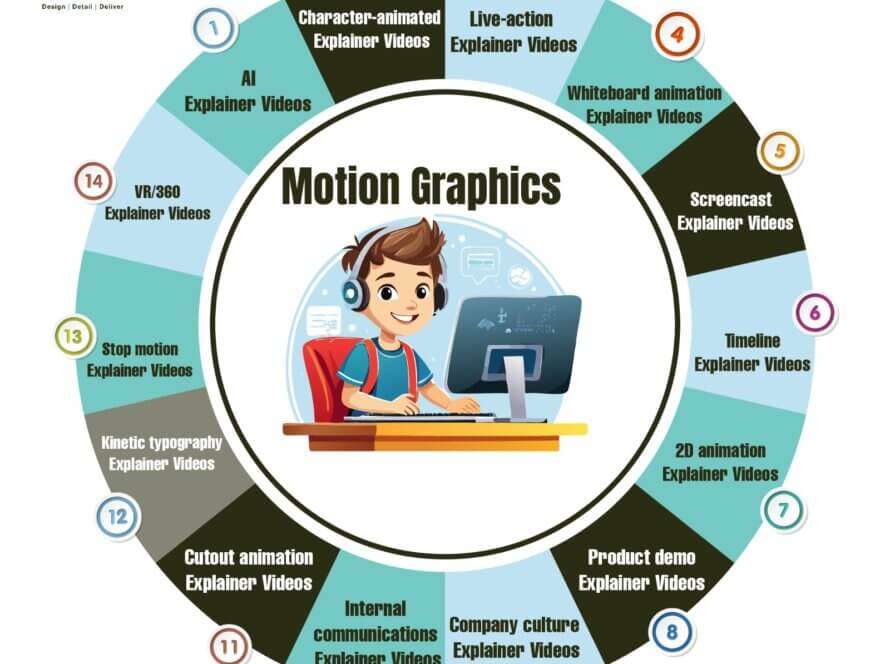Chatbots and Conversational Marketing: How The Customer Will Be Engaged in The Future
With a mentality of instant gratification expanding globally, it’s no wonder that brands are fining ways to integrate chatbots into their business models. Engaging with technology to allow for 24/7 assistance has really changed the game when it comes to brands. In this context, the opportunity of interacting with the audience, supporting customers, and engaging them become significantly more efficient and promising. Such transformations are becoming available thanks to the chatbot technology.
This blog revolves around the significance of chatbots and conversational marketing, their impact, and how businesses can use these channels for better interaction and growth.
What is Conversational Marketing?
Conversational marketing is a strategy that uses real-time one-on-one interactions between businesses and customers via chatbots, messaging apps and live chat solutions. The objective? Eliminate ambiguity in interactions, resolving issues at the time of inquiry which addresses the need of the customer.
This allows companies to move customers through the buyer’s funnel without interruption. Customers receive a range of services including suggestions, clarifications and support all from one source and with very little waiting time.
Advantages of Chatbots in Conversational Marketing.
All Time Availability.
Chatbots consistently respond to customers fully with all queries no matter what time it is. This availability heightens the level of satisfaction for customers in any brand, making a company go global without the need to expand physical support staff.
An Extra Layer to The Customer Experience.
Chatbots allow customers to resolve their issues in a matter of seconds thus improving user experience across the board. These days, there’s less friction in the purchasing process as these chatbots guarantee quick replies, helping users to engage with brands effortlessly.
AI chats can bring a different experience
The latest artificial intelligence chats have the capability to learn from customers, tailoring the conversations to their liking. They can suggest products to customers based on their prior buying habits or preferences using chat history, creating more engaging conversations with customers.
Chatbot Lead Generation.
AI Chatbots gather essential data such as customers’ needs, preferences, and budgets to provide quality leads, which can be handed over to sales for a more focused effort. This leads to enhanced conversions and assists sales in pursuing the most promising leads.
Time Optimization
Chatbots work with efficiency that human agents cannot come close to. A single chatbot can be deployed to more than one conversation at a go. This scalability decreases the expenses of operations, increasing productivity in the process.
How to incorporate AI chatbots through Artificial Intelligence in your marketing strategy
Define your desired results
Before opting for a chatbot, determine the main goal. Is it meant for customer service purposes, lead generation, e-commerce, or another goal? When clear goals are set, it is easier to adjust the interactions which the bot is programmed to engage in making it more efficient.
Match the bot to human empathy and expressiveness
Chatbots are still bound by protocols, but tweaking the script into a friendly conversation would be beneficial. Maybe even create a persona the bot can embody, so customers have the impression they’re speaking to a helpful person rather than a machine.
Deploy Chatbots on Various Platforms
To reach as many users as possible, connect your chatbot to as many channels as you can like your website, social media networks, and messaging applications. This helps because it ensures that your audience goes to the channel they desire to engage with.
Support smooth transitions without interruptions
The chatbot can perform many of the tasks however, resolving complicated issues will mean speaking to a human. Handover of the voice or webcam chat should be smooth in order to retain customer satisfaction and resolve intricate concerns promptly.
Use Data to Enhance Performance and Efficiency
Reviewing the dialogues with the bot helps to understand the users’ needs and their activities. Capitalize on such information to improve the bot functions, modify the marketing plan, and learn what else customers look for and where they might be left unattended.
The Future of Chatbots and Conversational Marketing
As AI and machine learning continue to evolve, chatbots will become even more intuitive, capable of understanding complex emotions and delivering hyper-personalized responses. Integrations with augmented reality (AR) could allow chatbots to assist with virtual try-ons, and advancements in natural language processing (NLP) will further improve the chatbot’s understanding of diverse customer queries.
The future of conversational marketing promises not only enhanced efficiency but also an improved connection between brands and customers, making customer experiences more enjoyable and meaningful.
GRIDSGLOBAL-READ MORE BLOG




